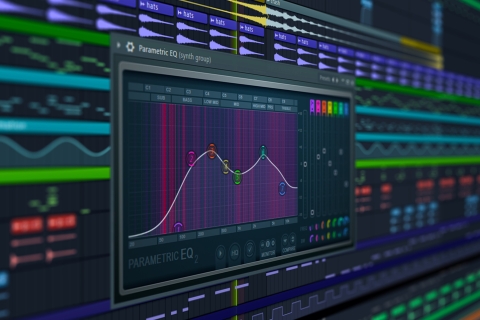

In this instalment of nDreams’ “A Day In The Life Of…”, we’ve been given a sneak peek into their audio team with Audio Director Matt Simmonds, talking about bringing games to life through the power of sound…
What do you do?
I’m the audio director, my job is to set out the vision for a game’s soundtrack with the game director and manage the progress of each aspect of the game’s audio through to completion. Be that music, sound effects, character dialogue or promotional material like game trailers.
How do you fit into nDreams?
I work with the game producers and directors to flesh out the direction and style of the audio, then with sound designers and freelance sound engineers to realise each element of the game’s audio. I also work with the publishing team to help with their promotional assets. The audio team is a shared resource so we can be working on multiple projects with different teams at once.
What kind of skills and experience do you need to be effective in your role?
I think a decent level of creative and technical skills are needed to run projects, but also being able to work well with people towards a common goal. Planning is a key element to my job, as it helps schedule tasks for my team and how that will fit into individual sections of the game
Walk us through a typical task for you…
Usually, I’ll have a meeting with a producer or the director to decide on what items need audio as high priority. After that, I’ll work out which in-game item I’m going to work on first. I get a feel for the item in game by playing through the latest build of the game to try to work out how we can enhance the item with good audio. Then I’ll dive deep into the studio’s resources to find source material that I use to create our own unique audio with our multitude of sound design tools. Of course, depending on the situation, we’ll sometimes record our own sounds.
After that, I move onto putting the sounds into the game. This can sometimes involve a bit of scripting to make sure the audio in game plays how I imagined it would, which I really enjoy!
What about an un-typical day recently?
A good example of an out of the ordinary day would be during dialogue recording sessions. Dialogue recording is very different to everything else I do, as it’s more direction than the technical side of things. For the most part we have sessions handled externally, while we dial into sessions to give voice direction. I sometimes find giving voice direction to be challenging, as it’s not something within my realm of expertise – though it does let me add the dialogue into the game after the sessions, which I do enjoy.
What do you love about your job?
While game audio is an exciting area of development, I think VR audio has opened some new avenues in game sound. Be they technical (such as spatial audio) or creatively (such as adding extra detail to otherwise ordinary objects). Audio is a lot more of a focus in VR and it’s interesting to see what does and doesn’t work compared to a traditional flat-screen game.
What areas do you enjoy less?
I’d say it’s the normal things like time sheets and general management, I like being ‘on the shop floor’ as much as I can on projects. Tracking basic things like those aren’t quite as fun as the rest of my job!
How did you get started in the industry? Why did you join nDreams?
I started in the industry back in the early ‘90s with the Amiga computer. This was after the first wave of home computers but just before the era of enthusiast machines was on the way out. It was an interesting time, seeing the rise of consoles and PC and then the technical jump to disc-based games.
It was a great time for getting into game audio, as someone just asked me “hey, want to do the music for my game?” and that was it, I guess! Over the years, that’s lead to me on games such as Chuck Rock, Micro Machines on the Mega Drive, some of the Silent Hill games, and even a Spongebob game!
Do you have any advice for people who want to do what you do?
Knowing how to bring the sound to life within the game will be the most important part of your job. With audio in modern game development, implementation of your sounds is at least half of the work. Having the practical skills as well as the creative ones are immensely important!
If you want to join the team at nDreams, follow them on Twitter and LinkedIn for all the latest job updates!
Enable University alerts
Turn on notifications for critical updates like closures, safety alerts, and urgent service disruptions.





